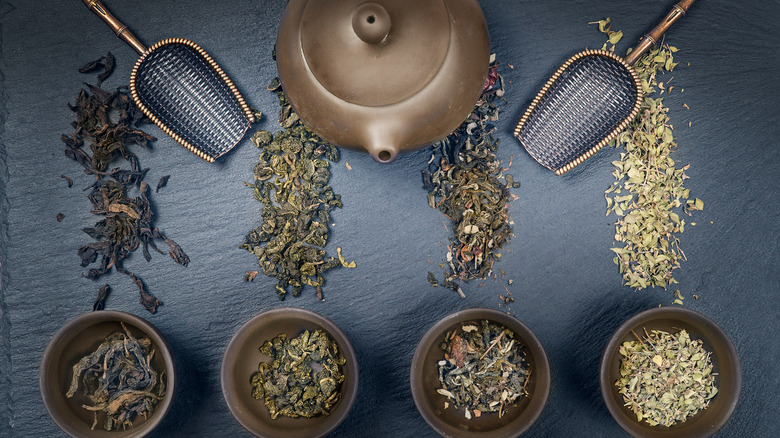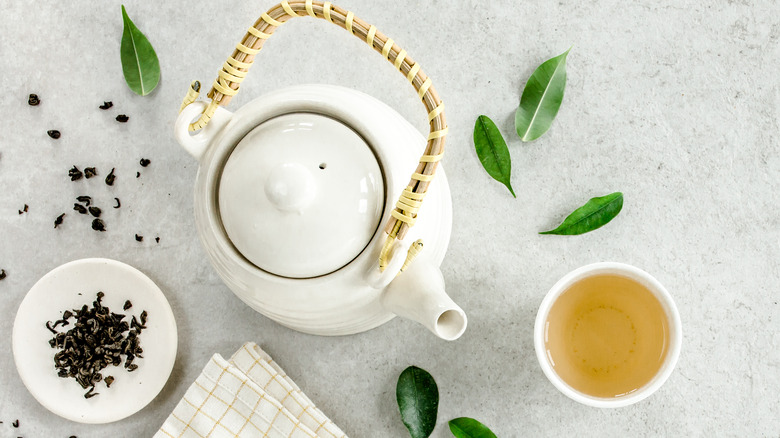This 2,400-Year-Old Tea May Be The Oldest Ever Discovered
Sometimes, there's nothing like a hot, comforting mug of tea. Whether you like grassy green tea, delicate oolong tea, or bold black tea, this beverage made from the leaves of the Camellia sinensis plant has long been enjoyed by people all over the world (via Tea People).
First domesticated in China more than 3,000 years ago, tea remains that nation's favorite beverage besides beer, with nearly 59% of respondents to a survey ranking tea as their preferred drink over juice, coffee, wine, and soda (via Statista). It's a habit that has been going strong for millennia, with archeologists having previously discovered 2,100-year-old fossilized tea leaves in the tomb of the Han dynasty emperor Liu Qi, who died in 141 B.C., in China's current-day Xi'an region, reports NPR. But a 2018 excavation of a royal tomb in today's Shandong province turned up a specimen that's 300 years older, and scientific analysis of the decayed plant material recently confirmed that it is, in fact, tea (via The Art Newspaper).
Tea residue was found in an overturned porcelain cup
According to The Art Newspaper, a team of archeologists from Shandong University in eastern China have discovered the oldest fossilized remains of domestic tea. In 2018, the team excavated a queen's tomb in the city of Zoucheng, which was the ancient capital of the Zhu kingdom from 614 B.C. to 218 B.C. During the excavation, the archeologists uncovered an overturned porcelain cup with some plant-based sediment inside it. The archeologists theorized that the material was tea, but it wasn't until recently that scientists at the University of Science and Technology Beijing confirmed this to be the case.
The fact that the porcelain cup containing the tea was found upside-down may well have been the reason the tea was so well preserved, according to the archeological team. The sample was "better protected from decay because the overturned cup blocked the air," professor Wang Qing, the project's director, told The Art Newspaper. It's presumed that similar vessels found in the tomb of the king of Yue, in current day southern China, where the Zhu queen is thought to have been born, were used to keep tea, too.

